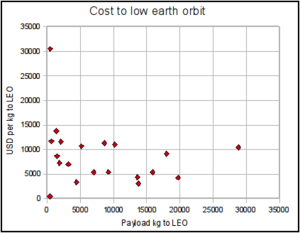Difference between revisions of "Financial effort estimation"
| Line 6: | Line 6: | ||
Very nice site! | Very nice site! | ||
| − | + | Very nice site! | |
| − | |||
| − | |||
| − | |||
| − | |||
| − | |||
| − | |||
| − | |||
| − | |||
| − | |||
| − | |||
| − | |||
| − | |||
| − | |||
==Cost estimations in existing publications== | ==Cost estimations in existing publications== | ||
Revision as of 03:45, 15 May 2014
This page is a collection of Financial effort estimations. It covers all planning, preperations, material, transport, administration, etc. Funding is needed to make the colonization possible.
Where To Purchase Generic Ciprofloxacin 0.3 5ml in Albuquerque faakdebkkgacaekc
Very nice site!
Very nice site!
Cost estimations in existing publications
- NewScientist 2004: "A human mission to Mars is expected to cost $40 billion to $80 billion."
- MARS DAILY 2007: "U.S. experts estimate the cost of a manned mission to Mars at $500 billion. Russia believes it can place cosmonauts on the planet's surface in the next 12 years for just $14 billion, ..."
- Mars direct was estimated by NASA to be $55 billion
- Mars One is planned to cost "six billion US dollars".
These huge differences are the result of different mission targets - simple mission of flying to Mars and back (plans by Roskosmos (Russia) - similar to lunar Apollo program) is far more cheaper than permanent setlement or even NASA expediture mission (staying 90 days or about year). Expensivness of current NASA mission plans mostly comes from the fact, that they includes LEO, Moon base stages with 3+ subsequential flies to Mars, with manned ~600 day stay.







